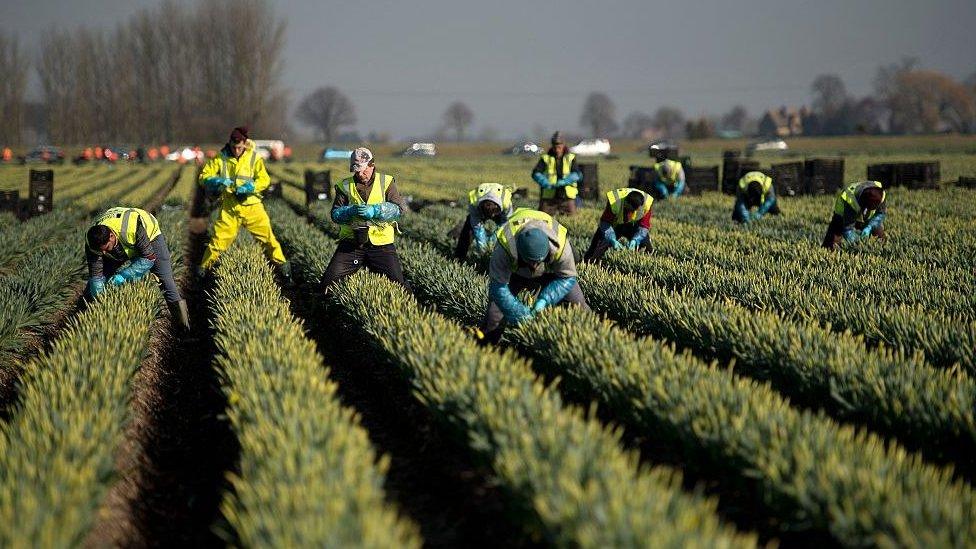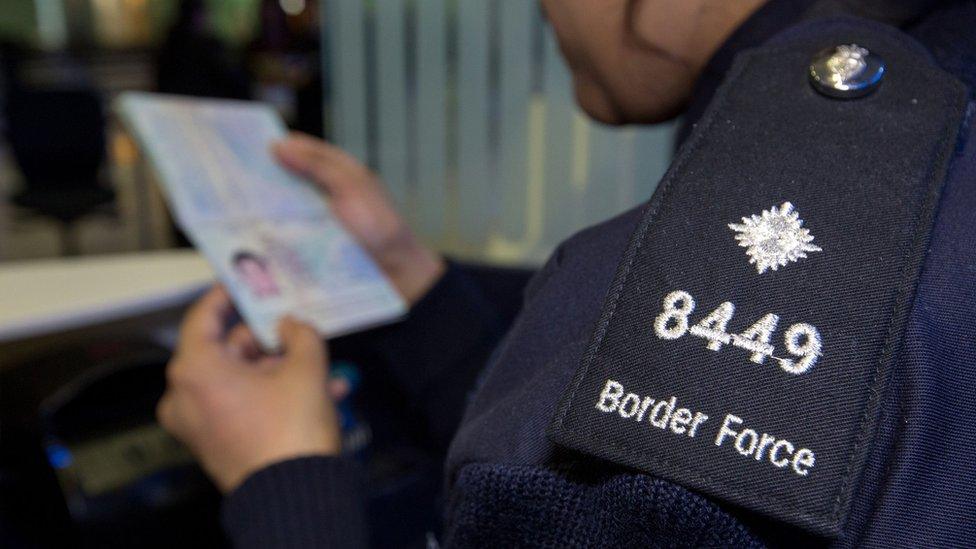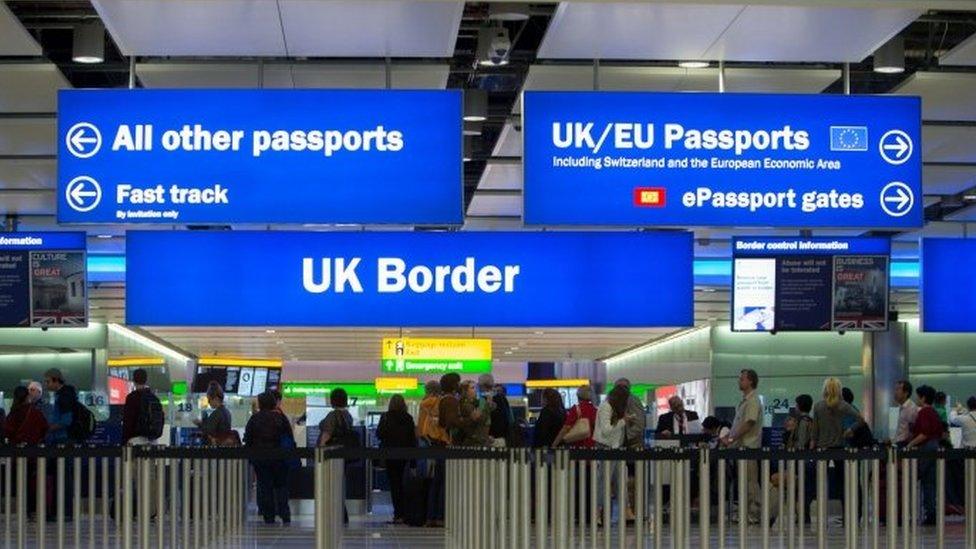Why some fear a shortage of immigrants
- Published

Britain's anxiety about immigration has long been that there is far too much of it. Concerns about the record number of foreign arrivals were a key factor in the vote for Brexit, and the national debate in Parliament and the press has tended to focus on who has got the best policies to reduce it as quickly as possible.
So one would think statistics suggesting a fall in net migration and a big drop on EU workers coming from the eight so-called accession countries (A8) like Poland would be a cause for rejoicing. Well, not entirely.
Nothing has changed at the UK Border since the Brexit vote - this isn't about Britain "taking control".
What has happened is that more than 100,000 EU citizens have left Britain - 17% more than in the previous year. And arrivals from the A8 countries have fallen sharply.
The number of new registered workers from Poland is down 16% year on year, Hungary is down 14%, Slovakia down 20% and Lithuania down 6%.
More workers have come from Romania and Bulgaria, up 11% and 8% respectively, but this may be because free movement from those countries came in much more recently.
Some may have packed their bags fearing the brief window allowing them access to Britain might soon close.
For most European nationals, though, uncertainty over the status of EU citizens in a post-Brexit Britain, and the sharp fall in the pound, has made the UK a much less attractive prospect.
Full employment
Some British employers are very worried.
The growth of our hugely profitable tourism and hospitality sector, for instance, has relied upon importing foreign labour.
I recently went to York, where the tourist industry is booming. In that city alone it is now worth an astonishing £500m a year and supports more than 20,000 jobs.
But the expansion could not have happened without immigration. The city has close to full employment - there are estimated to be fewer than a thousand local job seekers.
The news of a fall in migrant workers from countries which have traditionally filled tourist jobs makes grim reading for York's hoteliers, restaurateurs and bar owners.
If the numbers continue to fall, some fear the worst.
"It would create a staffing crisis," says Graham Usher, who heads York's Hoteliers' Association. "If we get to the point where we can't fill vacancies with European workers then there's a big gap that we just can't fill."
What about using British workers? I ask.
"There just aren't enough of them around. York only has about 700 unemployed people and that is it."
A quarter of hospitality businesses across Britain say they currently have vacancies they are struggling to fill and the sector has been holding urgent talks with government officials on how to deal with the shortage of workers.
It is not just the tourism and hospitality sector, of course. Britain's record employment rate means there is often no immediate domestic alternative to migrant labour for many businesses looking to expand or simply survive.
'How can I operate?'
Poskitt's Carrots is a £35m a year business in the East Riding of Yorkshire, supplying vegetables to many of Britain's big supermarkets.
In the shed where 50,000 tonnes of carrots are washed and packed, 80% of the staff are Eastern Europeans.

"If we didn't have access to non-UK labour we just could not run this business," says managing director Guy Poskitt. "I wouldn't even attempt to try and run it. Take away 80% of my workforce how can I operate?"
Guy Poskitt doesn't want to be reliant on migrant labour, but argues that there just aren't the domestic workers available from the rural communities nearby.
Some argue that Britain needs to rid itself of its addiction to cheap migrant labour, that employers should do more to train and recruit home-grown workers.
Many sectors are now thinking how they might adapt to Britain becoming a lower immigration economy.
Health ministers hope that universities will expand the number of training places for nurses in England to reduce the reliance on foreign staff.
The government recently lifted the cap on state-funded bursaries, but replaced them with student loans. Since the announcement, the number of applicants for nurse training in England has fallen 23%.
Britain's creative industries, which are worth more to the UK economy than the finance sector, are often collaborative ventures involving highly skilled but relatively low paid workers from around the world.
From ballet companies to computer gaming firms, there is concern that an inability to attract or employ foreign staff will damage their international standing and profitability.
The social care sector is also extremely concerned about the lack of suitable domestic staff to replace foreign workers who, in parts of the country make up the majority of employees.
Earlier this week the Brexit Secretary David Davies told an audience in Estonia that in sectors requiring low-skilled labour including hospitality, agriculture and social care "it will be years and years before we get British citizens to do those jobs".
"Don't expect just because we're changing who makes the decision on the policy, the door will suddenly shut: It won't," he said.
What the figures remind us, however, is that immigration works both ways.
We may not suddenly shut the door, but that doesn't mean foreigners will choose to walk through it.
- Published23 February 2017
